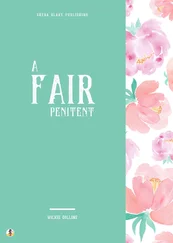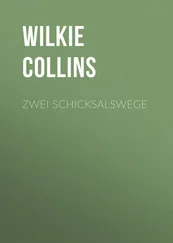Wilkie Collins - Little Novels
Здесь есть возможность читать онлайн «Wilkie Collins - Little Novels» весь текст электронной книги совершенно бесплатно (целиком полную версию без сокращений). В некоторых случаях можно слушать аудио, скачать через торрент в формате fb2 и присутствует краткое содержание. Год выпуска: 1999, Жанр: Классическая проза, на английском языке. Описание произведения, (предисловие) а так же отзывы посетителей доступны на портале библиотеки ЛибКат.
- Название:Little Novels
- Автор:
- Жанр:
- Год:1999
- ISBN:нет данных
- Рейтинг книги:5 / 5. Голосов: 1
-
Избранное:Добавить в избранное
- Отзывы:
-
Ваша оценка:
- 100
- 1
- 2
- 3
- 4
- 5
Little Novels: краткое содержание, описание и аннотация
Предлагаем к чтению аннотацию, описание, краткое содержание или предисловие (зависит от того, что написал сам автор книги «Little Novels»). Если вы не нашли необходимую информацию о книге — напишите в комментариях, мы постараемся отыскать её.
Little Novels — читать онлайн бесплатно полную книгу (весь текст) целиком
Ниже представлен текст книги, разбитый по страницам. Система сохранения места последней прочитанной страницы, позволяет с удобством читать онлайн бесплатно книгу «Little Novels», без необходимости каждый раз заново искать на чём Вы остановились. Поставьте закладку, и сможете в любой момент перейти на страницу, на которой закончили чтение.
Интервал:
Закладка:
“No,” said Miss Dulane, “I won’t give you his lordship’s photograph.”
“What is your objection, Matilda?”
“A very serious objection, Elizabeth. You are not pure enough in mind to be worthy of my husband’s photograph.”
With that reply the first of the remonstrances assumed hostile proportions, and came to an untimely end.
II.
THE second remonstrance was reserved for a happier fate. It took its rise in a conversation between two men who were old and true friends. In other words, it led to no quarreling.
The elder man was one of those admirable human beings who are cordial, gentle, and good-tempered, without any conscious exercise of their own virtues. He was generally known in the world about him by a fond and familiar use of his Christian name. To call him “Sir Richard” in these pages (except in the character of one of his servants) would be simply ridiculous. When he lent his money, his horses, his house, and (sometimes, after unlucky friends had dropped to the lowest social depths) even his clothes, this general benefactor was known, in the best society and the worst society alike, as “Dick.” He filled the hundred mouths of Rumor with his nickname, in the days when there was an opera in London, as the proprietor of the “Beauty-box.” The ladies who occupied the box were all invited under the same circumstances. They enjoyed operatic music; but their husbands and fathers were not rich enough to be able to gratify that expensive taste. Dick’s carriage called for them, and took them home again; and the beauties all agreed (if he ever married) that Mrs. Dick would be the most enviable woman on the face of the civilized earth. Even the false reports, which declared that he was privately married already, and on bad terms with his wife, slandered him cordially under the popular name. And his intimate companions, when they alluded among each other to a romance in his life which would remain a hidden romance to the end of his days, forgot that the occasion justified a serious and severe use of his surname, and blamed him affectionately as “poor dear Dick.”
The hour was midnight; and the friends, whom the most hospitable of men delighted to assemble round his dinner-table, had taken their leave with the exception of one guest specially detained by the host, who led him back to the dining-room.
“You were angry with our friends,” Dick began, “when they asked you about that report of your marriage. You won’t be angry with Me. Are you really going to be the old maid’s husband?”
This plain question received a plain reply: “Yes, I am.”
Dick took the young lord’s hand. Simply and seriously, he said: “Accept my congratulations.”
Howel Beaucourt started as if he had received a blow instead of a compliment.
“There isn’t another man or woman in the whole circle of my acquaintance,” he declared, “who would have congratulated me on marrying Miss Dulane. I believe you would make allowances for me if I had committed murder.”
“I hope I should,” Dick answered gravely. “When a man is my friend—murder or marriage—I take it for granted that he has a reason for what he does. Wait a minute. You mustn’t give me more credit than I deserve. I don’t agree with you. If I were a marrying man myself, I shouldn’t pick an old maid—I should prefer a young one. That’s a matter of taste. You are not like me. You always have a definite object in view. I may not know what the object is. Never mind! I wish you joy all the same.”
Beaucourt was not unworthy of the friendship he had inspired. “I should be ungrateful indeed,” he said, “if I didn’t tell you what my object is. You know that I am poor?”
“The only poor friend of mine,” Dick remarked, “who has never borrowed money of me.”
Beaucourt went on without noticing this. “I have three expensive tastes,” he said. “I want to get into Parliament; I want to have a yacht; I want to collect pictures. Add, if you like, the selfish luxury of helping poverty and wretchedness, and hearing my conscience tell me what an excellent man I am. I can’t do all this on five hundred a year—but I can do it on forty times five hundred a year. Moral: marry Miss Dulane.”
Listening attentively until the other had done, Dick showed a sardonic side to his character never yet discovered in Beaucourt’s experience of him.
“I suppose you have made the necessary arrangements,” he said. “When the old lady releases you, she will leave consolation behind her in her will.”
“That’s the first ill-natured thing I ever heard you say, Dick. When the old lady dies, my sense of honor takes fright, and turns its back on her will. It’s a condition on my side, that every farthing of her money shall be left to her relations.”
“Don’t you call yourself one of them?”
“What a question! Am I her relation because the laws of society force a mock marriage on us? How can I make use of her money unless I am her husband? and how can she make use of my title unless she is my wife? As long as she lives I stand honestly by my side of the bargain. But when she dies the transaction is at an end, and the surviving partner returns to his five hundred a year.”
Dick exhibited another surprising side to his character. The most compliant of men now became as obstinate as the proverbial mule.
“All very well,” he said, “but it doesn’t explain why—if you must sell yourself—you have sold yourself to an old lady. There are plenty of young ones and pretty ones with fortunes to tempt you. It seems odd that you haven’t tried your luck with one of them.”
“No, Dick. It would have been odd, and worse than odd, if I had tried my luck with a young woman.”
“I don’t see that.”
“You shall see it directly. If I marry an old woman for her money, I have no occasion to be a hypocrite; we both know that our marriage is a mere matter of form. But if I make a young woman my wife because I want her money, and if that young woman happens to be worth a straw, I must deceive her and disgrace myself by shamming love. That, my boy, you may depend upon it, I will never do.”
Dick’s face suddenly brightened with a mingled expression of relief and triumph.
“Ha! my mercenary friend,” he burst out, “there’s something mixed up in this business which is worthier of you than anything I have heard yet. Stop! I’m going to be clever for the first time in my life. A man who talks of love as you do, must have felt love himself. Where is the young one and the pretty one? And what has she done, poor dear, to be deserted for an old woman? Good God! how you look at me! I have hurt your feelings—I have been a greater fool than ever—I am more ashamed of myself than words can say!”
Beaucourt stopped him there, gently and firmly.
“You have made a very natural mistake,” he said. “There was a young lady. She has refused me—absolutely refused me. There is no more love in my life. It’s a dark life and an empty life for the rest of my days. I must see what money can do for me next. When I have thoroughly hardened my heart I may not feel my misfortune as I feel it now. Pity me or despise me. In either case let us say goodnight.”
He went out into the hall and took his hat. Dick went out into the hall and took his hat.
“Have your own way,” he answered, “I mean to have mine—I’ll go home with you.”
The man was simply irresistible. Beaucourt sat down resignedly on the nearest of the hall chairs. Dick asked him to return to the dining-room. “No,” he said; “it’s not worth while. What I can tell you may be told in two minutes.” Dick submitted, and took the next of the hall chairs. In that inappropriate place the young lord’s unpremeditated confession was forced out of him, by no more formidable exercise of power than the kindness of his friend.
Читать дальшеИнтервал:
Закладка:
Похожие книги на «Little Novels»
Представляем Вашему вниманию похожие книги на «Little Novels» списком для выбора. Мы отобрали схожую по названию и смыслу литературу в надежде предоставить читателям больше вариантов отыскать новые, интересные, ещё непрочитанные произведения.
Обсуждение, отзывы о книге «Little Novels» и просто собственные мнения читателей. Оставьте ваши комментарии, напишите, что Вы думаете о произведении, его смысле или главных героях. Укажите что конкретно понравилось, а что нет, и почему Вы так считаете.











